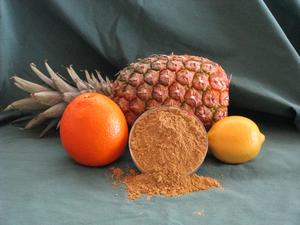Contact Information: Media Contact: Amy Summers 727-848-1618 ext. 202 Pitch Inc.
SUGAR SHOCKER
New Discovery Makes Colas, Cakes and Cookies Safer for Diabetics
| Source: ATM Metabolics
TAMPA, FL--(Marketwire - February 26, 2008) - To keep up with the public's ever growing sweet
tooth, the sugar substitute industry is in no shortage of business. But
now new research shows that there could be a way to make sugar safer.
Growing concerns about the obesity crisis and the explosive increase of
people around the world being diagnosed with diabetes has many experts
concerned that innovation in nutrition is not keeping up with major health
threats of the 21st century.
Scientists say the diabetes and obesity problem is a direct result of
eating an excessive amount of refined and manufactured foods over the past
60 years. So instead of changing people's eating habits, two Florida
scientists have set out to change how our foods work for us.
"We are taking food products that are considered part of the problem, like
colas, cakes and cookies, and enlisting them to be part of the solution in
the fight against diabetes," says Daryl Thompson, scientific director of
ATM Metabolics, a research firm specializing in treatments for metabolic
and neurological disorders. "There is a sugar defense mechanism that
already exists in plants to make sugary foods safe for humans; we just
discovered how to put that compound into typical junk food."
Thompson along with his colleague, Joseph Ahrens, Ph.D., who discovered the
fat blocking abilities of grapefruit, have now discovered what they call
Simulin, a compound naturally derived from tropical fruits and vegetables
that can be used to protect the body from the negative impact of sugar in
the blood stream. Certain plants contain this natural "biological
modifier," which works as a defense mechanism to protect themselves from
the adverse elements in nature.
"Simulin is not a sweetener or a sugar alternative," says Aherns. "It's a
sugar defense mechanism that can be added to any sugar-laden manufactured
food and then works to protect the body from the glycemic impact of that
food without altering the taste."
Initial study results show that Simulin works by reducing the amount of
carbohydrates absorbed after meals and reducing the amount of glucose
produced by the liver. It also accelerates the removal of excess sugar
from the bloodstream, mobilizes carbohydrates from the fat cells and
increases the sensitivity of insulin receptors in the signaling pathways
making insulin more efficient.
Thompson and Ahrens believe Simulin will most likely be used in commonly
consumed manufactured foods such as breads, beverages and snacks, in a
similar fashion as folate when it was originally added to sliced bread to
prevent birth defects. They believe that this new discovery will create a
better world for diabetics and dramatically reduce the number of new
diabetic patients by combating the leading cause of the disease,
hyperglycemia.
Simulin is currently going through its last stages of development and
research and may soon be available in many food and beverage products.
Take an online survey to give your feedback on what foods you think should
have Simulin at: http://www.ATMmetabolics.com.
